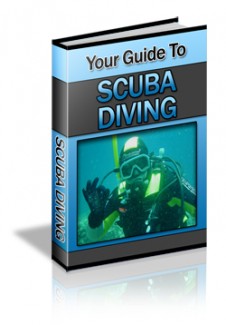
 License Type: Master Resell Rights
License Type: Master Resell Rights  File Size: 1,809 KB
File Size: 1,809 KB File Type: ZIP
File Type: ZIP
 SKU: 2017
SKU: 2017  Shipping: Online Download
Shipping: Online Download
Ebook Sample Content Preview:
Before you start scuba diving, you need to make sure that you are actually healthy enough to dive. There are several medical conditions for which diving will have a negative impact. This includes long term illnesses and short term illnesses.
Short term illnesses and conditions that will temporarily keep you from diving include pregnancy, colds, and the flu, as well as some injuries. There has not been enough research done in how diving affects a fetus, but experts recommend that pregnant women avoid diving due to the water pressure and the mixture of gases that enter the system.
When you have a cold or flu, the pressure within your sinus system is already affected, and the water pressure will only add to those problems, and may complicate a simple cold or flu.
While the injury that you have may not physically prevent you from diving, it may increase your chances of experiencing decompression illness. All injuries to joints and muscles should be completely healed before you resume your diving activities.
If you are on medications of any kind, you need to ask your doctor about the safety of scuba diving while taking such medication. If you are still in training, you also need to inform your scuba instructor. This is also true for over the counter medications. If the medication you are taking causes drowsiness, do not dive. If medication affects your heart rate, again, do not dive.
Asthma is one condition that can prevent you from scuba diving. This is determined on a case by case basis by your health care provider. When you scuba dive, the air and/or gases that you are breathing are cool and dry, which makes conditions right for an asthma attack. Divers also exert a lot of physical energy which can cause breathlessness.
Diabetics who are insulin dependant were once advised against diving. However, more and more insulin dependant diabetics are now diving, but their health must be closely monitored. After checking with your doctor, a diabetic may dive if their blood glucose levels are under control and they do not have any conditions that are a direct complication of diabetes, such as eye diseases, kidney problems, or blood vessel problems. It is also very important that the diabetic has a complete understanding of how exercise can affect their diabetes.
- File Size:1,809 KB
- License: Master Resell Rights
- Category:Ebooks
- Tags:2009 Ebooks Master Resale Rights







